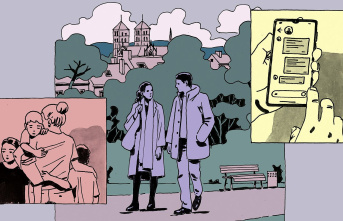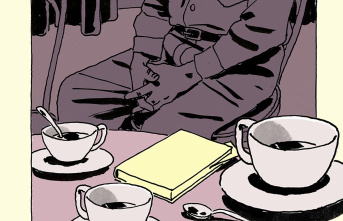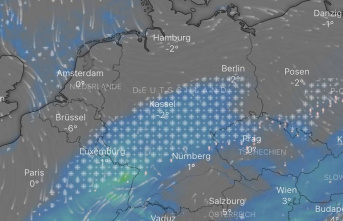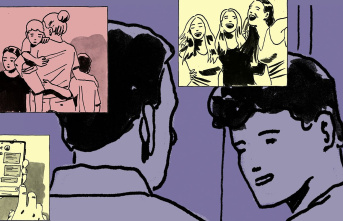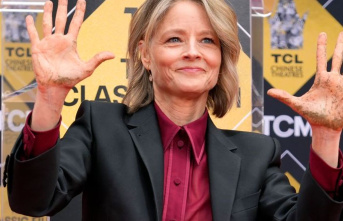After an attempt at resistance on the part of the journalists, the Afghan intergrist regime imposed this Sunday its new Islamist norms on the country's television channels and forced the presenters to announce the news bulletins with their faces covered, except for the eyes and the forehead. The threat was clear from the authorities of the Taliban regime: either the employees complied with the latest decree of the Leader -compulsory use of the burqa, the integral veil- or they went home. Both they and their husbands and close relatives, if the latter work in the public sector.
Before this rule, the Taliban - who returned to power in Kabul in August last year - only required female presenters to wear the hijab, the Islamic veil that covers the hair.
The provision of the burqa, which women who work in front of the cameras on all Afghan television channels have had to abide by, is just the latest twist to impose the radical model of Sharia, Islamic law. Upon coming to power, the Taliban promised the international community that they would apply a more moderate model than that of their first stage in government (1996-2001), but in recent months their provisions -particularly against the rights and freedoms of the women - have been relentless.
In their declarations to international press agencies, several TV presenters affirmed that they decided to comply with the government's order in order not to lose their jobs - "our families depend on our salary," said one of them - and "to continue in the struggle".
«We will continue with our fight using our voice. I will be the voice of the other Afghan women”, promised to France Presse Sonia Niazi, presenter of TOLOnews, after presenting the newsletter. "We will come to work until the Islamic emirate removes us from public space or forces us to stay at home."
Of all the Sharia norms relating to women, the veil is perhaps the most decisive for Islamist political ideology due to its character as a 'religious symbol', both in countries where Muslims are a majority and where they are a minority.
The dispute between the Muslims themselves about the obligation of the feminine veil is old. According to some, Mohammed established it for his women, disturbed to see how they flirted with men who came to see the prophet. From the initial obligation for the wives of Mohammed, it would have passed to that of the wives of “the believers” if verse 59 of the sura of the Parties, in the Koran, is literally followed: “Prophet! Tell your wives and daughters and the women of the believers to cover themselves from above with their clothes. This is the most appropriate way for them to be recognized and not offended. Some scholars believe that the obligation was limited to the wives of the prophet and did not apply, already in Muhammad's time, to the others. In fact, the 'musfirat', the uncovered women, abounded then. What began as a custom tended to become sacralized over time, as occurs with many other aspects of the Koran –where it is difficult to find the border between the sacred and the profane–; but it never reached the strength it has today thanks to the rise of Islamism, and the lack of political alternatives to that movement in the Muslim world.
Both in Afghanistan and in Iran (and its version of the chador) and in the Gulf countries (which have a radical model like the Afghan, the niqab), the legislation of the female veil feels shielded by the indirect support provided in the West by the left-wing parties, much more sensitive to the Muslim female garment than to the crucifix in schools. His support for Muslim girls being able to wear the veil in public schools crystallized months ago in the Council of Europe's campaign in favor of that garment, under the slogan 'the beauty of diversity'.
2


